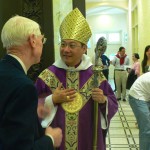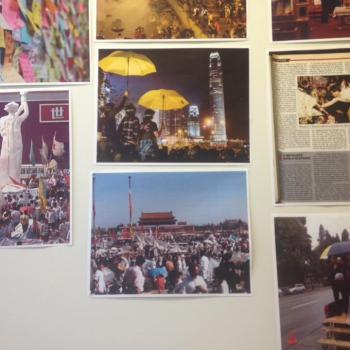Previously, I’ve posted on Taiwan’s student movement, Hong Kong’s Occupy Central movement, and the Tiananmen student movement. Read them, if you’d like, for some background for how this current series has come about.
When I was four, my American preschool teacher in Fremont, California asked me where my parents were from.
I knew the answer because I had recently asked my mom whether being Chinese meant that we were from China. ‘No,’ she said, ‘we are from Hong Kong.’
‘But isn’t that China?’ I asked, pointing to a globe that we had bought from Costco. Hong Kong was just under China – my parents had shown me that before.
‘No,’ she said. ‘It’s actually ruled by the British. So it’s just Hong Kong.’
That’s what I told my teacher. ‘They’re from Hong Kong,’ I said.
‘Isn’t that China?’
‘No,’ I said, ‘it’s Hong Kong.’
I relate this story to reiterate that I am not from Hong Kong.
As I’ve written elsewhere, my standard answer when people ask me where I’m from is Vancouver. After all, I was born there, and after a hiatus of eighteen years, I did three degrees and got married there.
But if people press the question, where are you really from? I say, ‘San Francisco. Or Fremont, to be precise.’
I’m here to announce that this jook sing jai – this ‘hollow bamboo’ Asian American who also happens to be Asian Canadian – is writing about Hong Kong today. And not just today, but for the next few days – just as I have done previously here and here.
That’s because this seemingly innocuous question that I was asked in preschool is turning out to be a huge political question in Hong Kong.
I went to preschool in 1990, a year after the events of the Tiananmen student movement, during which I quite literally sat in front of the television as a three-year-old and sang passionately to the song that came out of the massacre, ‘The Wound of History.’
To be honest, I had no idea what was going on – I was three! – but my grandfather did. As the son of a powerful Shanghainese tycoon who got taken down by the communists in 1949, my grandfather could not stomach the idea of Hong Kong, his place of refuge, returning to Chinese sovereignty in 1997. After Tiananmen, he basically assumed the fetal position until my grandmother resigned from her headmistress job at a Wesleyan school in Hong Kong so that they could pack up, sell their Hong Kong place, and move in with my relatives in San Francisco’s Sunset District.
He died shortly after the handover. But not before impressing on me that I needed to care.
I’m not going to give away why I care quite yet, except to say that these days, it’s about way more than my grandfather. What I’ll do instead is to spend the next few days explaining to you the nuances of what I was trying to say when I was a four-year-old in a Fremont preschool. After 1997, yes, Hong Kong became part of China. But as China made clear, Hong Kong was a Special Administrative Region existing in a ‘one country, two systems’ deal and constitutionally framed by something called Basic Law. As I’ve said in my more recent posts, it’s that that is under challenge in Hong Kong right now, with movements like Occupy Central with Love and Peace and the Beijing central government issuing a ‘white paper’ asserting their sovereignty over Hong Kong. ‘One country, two systems’ is turning out to be messier than anyone thought. Add in what’s happening with students in Taiwan right now – if you didn’t know, ‘one country, two systems’ was supposed to be a sort of experiment for Taiwan reunification too – and it’s really messy.
What I’ll do over the next few days is to give you a sense of how that ‘one country, two systems’ framework came about. Along the way, I’ll tell you why I care. But you need to know the facts too.












